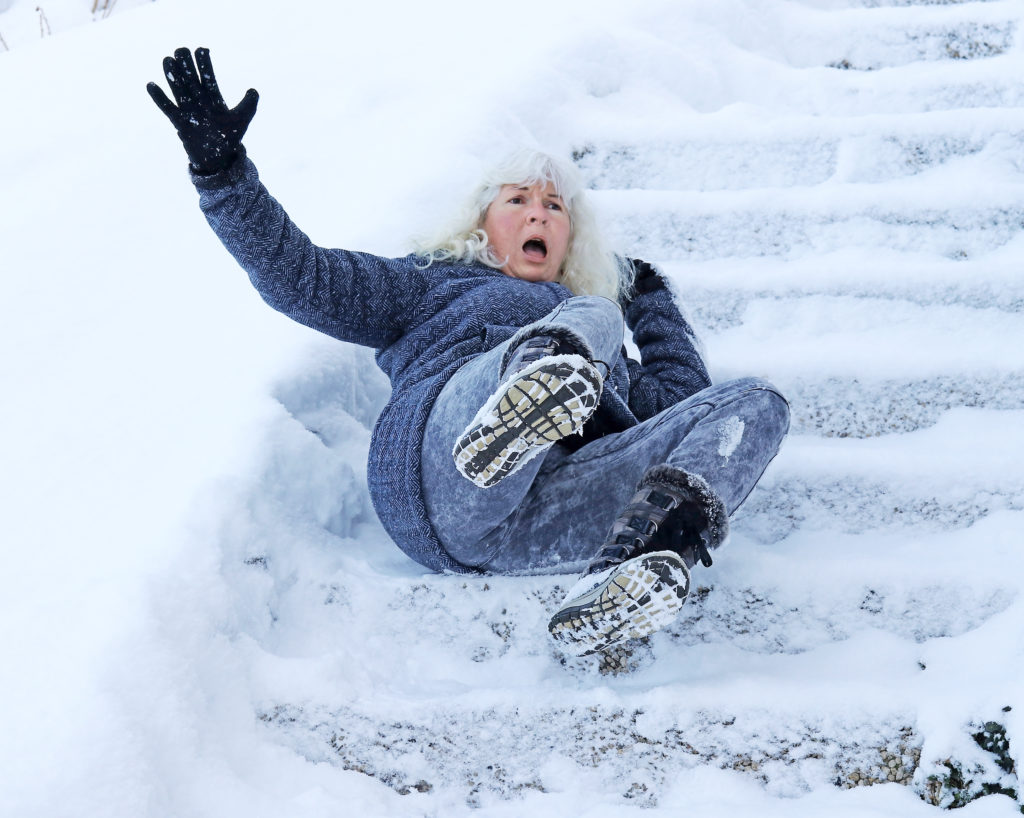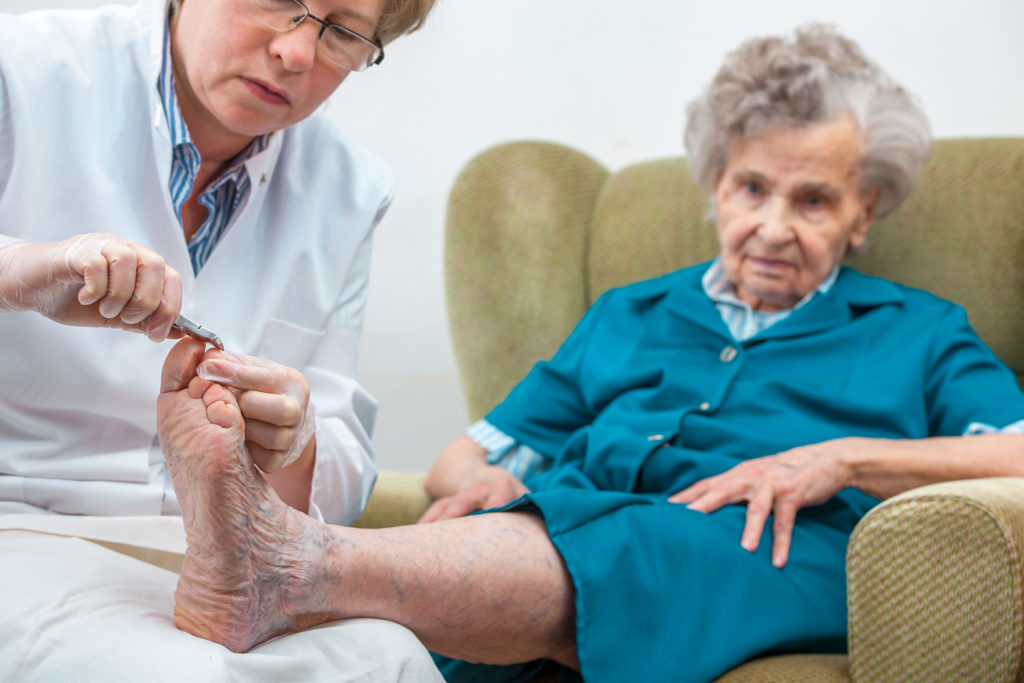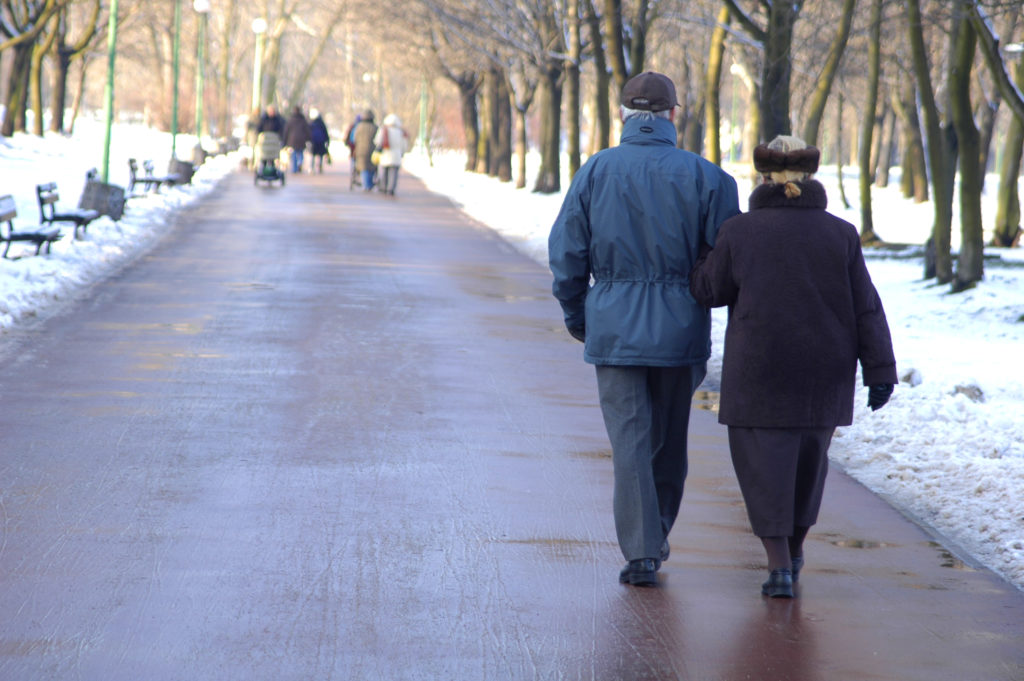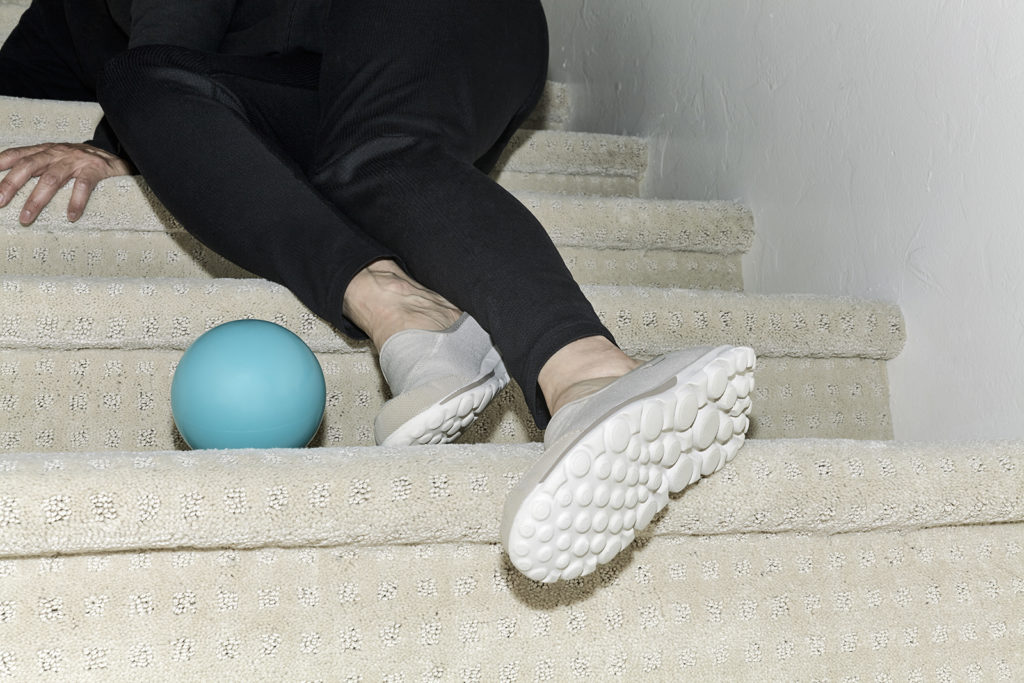Fall Prevention Is Serious Business
Each year about 2.2 million older Americans go to the emergency room with fall-related injuries. Besides getting bumped and bruised, a fall can result in bone fractures and even death. A fall is very serious. Remember, just one fall can permanently rob you of your independence and dramatically reduce your quality of life.
At this time of year with the icy, slippery conditions, it’s a good idea to review some safety measures.
Winter Weather Precautions.
When the weather is bad, don’t go out if you are tired or not feeling well. This increases your chance of falling. If you do need to get out, carry a cell phone so you can get help quickly in case of a fall. Bundle up to stay warm but make sure you can see in all directions and move easily and freely.
Watch Your Step
Call a service to clear your walkway of snow and put down salt. It’s worth it. Be sure to keep some extra salt on hand to sprinkle around the pathway out to the car or mailbox. Snow can hide uneven surfaces and curbs so watch where your foot will land! Wear boots or rubber-soled shoes even if you just need to get the mail. Dry off shoes and assistive devices when you come indoors. Wet shoes on dry surfaces can be slippery too! You might ask your therapist about winter canes or cleats you can add to your shoes to decrease fall risk if you regularly go out.
Injuries due to falling can make it hard to get around and manage everyday activities. People who fall, even if there is no injury, become afraid of falling again. This fear may cause people to cut down on everyday activities, becoming weaker and increasing the chances of falling again.
Call AW Health Care for an assessment after a fall. (314) 330-7992. We can alleviate your concerns and help you get back to regular activities.
Stay Strong
Are you holding onto walls, furniture, or someone else when walking? Do you have difficulty arising from a chair? These are signs that it might be time to see a physical therapist.
A therapist may suggest a cane or walker—and provide guidance on how to use these aids. Follow their advice. Poorly-fitting aids actually increase the risk of falling.
You improve balance, strength, and gait through exercise. It can be hard to stay motivated to exercise especially in the colder weather when you are homebound. Try standing at a counter and do knee-bends, or practice balancing on one leg. March in place. Stand up from your chair, sit down and then stand again to keep legs strong. If you are unsure about what exercises are good for you, consult a trained therapist. Call AW Health Care at (314) 330-7992. We have therapists who can come to your home or apartment to help you with proper exercise.
At Your Next Doctor Visit
- Review your medicines with your doctor. Some medicines make you sleepy or dizzy and might add to your fall risk such as tranquilizers, sedatives or antidepressants.
- Beware of non-prescription medications that contain sleep aids—including painkillers with “PM” in their names. These can lead to balance issues and dizziness. Talk with your doctor about these.
- You may also want to ask about Vitamin D deficiency which can contribute to falls.
- Certainly lower body weakness with walking and balance may warrant a referral to a physical therapist.
Visions Problems
Have your eyes checked. Being able to see well can help prevent falls. Have your eyes checked by an eye doctor at least once a year, and get your eyeglasses updated if needed.
Foot Pain
Painful foot conditions, such as osteoarthritis, corns, bunions, hammertoes and diabetes complications, can make it difficult for seniors to maintain balance and coordination when walking or standing.
- Do not ignore pain: Foot pain is not just a normal consequence of growing older, so do not resign yourself to aching and suffering. You likely have a treatable condition. For a proper diagnosis and intervention, be sure to pay attention to your feet and see a foot and ankle surgeon if and when you experience pain.
- Examine your feet: You are the gatekeeper of your own health, making regular at-home foot examinations critical. At the sign of bumps, lumps or other changes in your feet, make an appointment with your foot and ankle surgeon.
- Protect: Use padding, insoles or whatever special footwear you are prescribed. Be sure to wear these, along with comfortable, sensible shoes, every day.
- Be flexible: Know that at times, surgery is the most appropriate treatment for a given condition. Fortunately, many simple surgical techniques allow foot surgery to be performed on an outpatient basis.
Important Prevention Strategies
Look First! Plan Your Route!
- Plan ahead. Allow enough time to get where you are going. Chances of falling increase when you rush. Take your time. Walk slowly and deliberately. Try to place each foot flat on the ground with each step. It’s OK to ask someone for help if you feel unsafe on slippery paths.
- Look for the safest route to your location, including the paths into buildings. Choose
alternate routes when necessary. - Plan trips around the weather. If you do not need to go out, don’t go out. Wait for the weather and travel conditions to clear.
- Exercise caution when getting into and out of vehicles. Hold on to a door or another person.
Safe Sensible Shoes
- Sturdy shoes that fit properly are best for seniors. Seniors should avoid wearing flip flops, slippers, high heels and backless shoes. Even bare feet or socks can lead to slips and falls, so it’s best to wear shoes as often as possible.
- Wear appropriate footwear for rainy or icy weather. Wear shoes or boots with rough-
textured soles that provide good grip. - Clean your shoes after going inside. Snow and ice can freeze onto the soles of shoes and become treacherous, even indoors.
Clutter! A Common Cause of Trips and Falls
- Assess the floor regularly and look for items that could cause a fall. These include electrical cords, pet toys, magazines, shoes, baskets and plants. Even throw rugs can bunch up and cause a fall.
- Clean up spills immediately. Otherwise, you or someone else could slip on the substance and cause a serious fall.
Move It Or Lose It!
- Staying physically active is one of the best things seniors can do to prevent falls.
- Many falls are caused by muscle weakness. To combat this do strength-building exercises. Walking, swimming and dancing are exercises that build leg strength while improving coordination and balance. Yoga and tai chi improve balance.










Comments are closed.